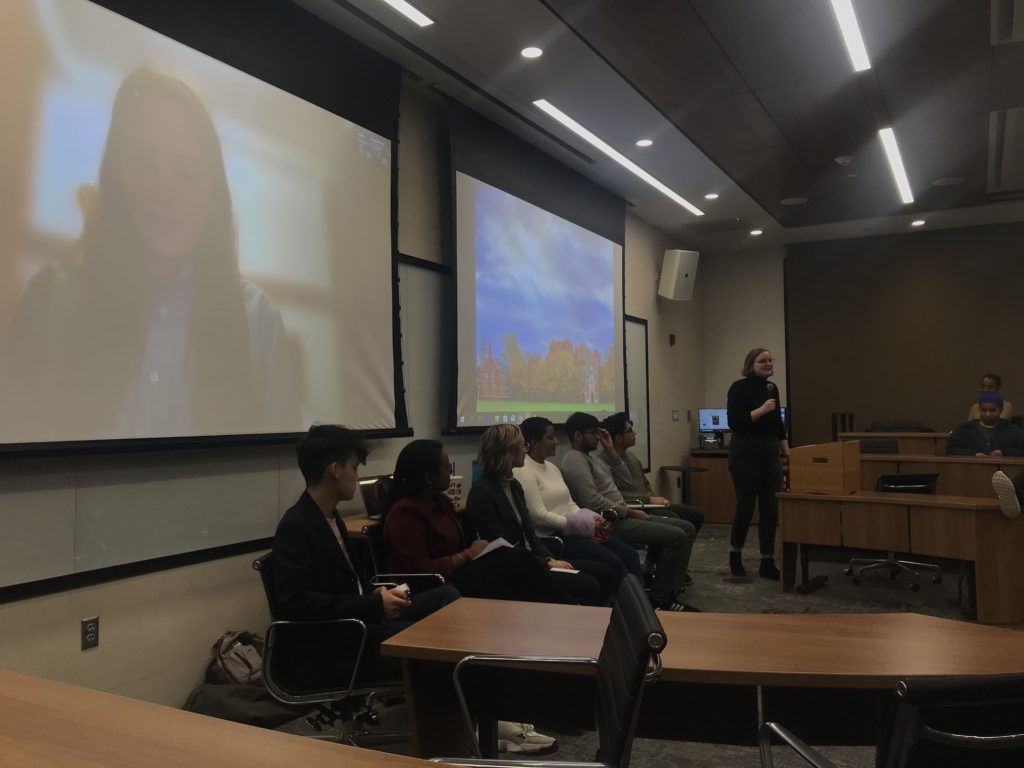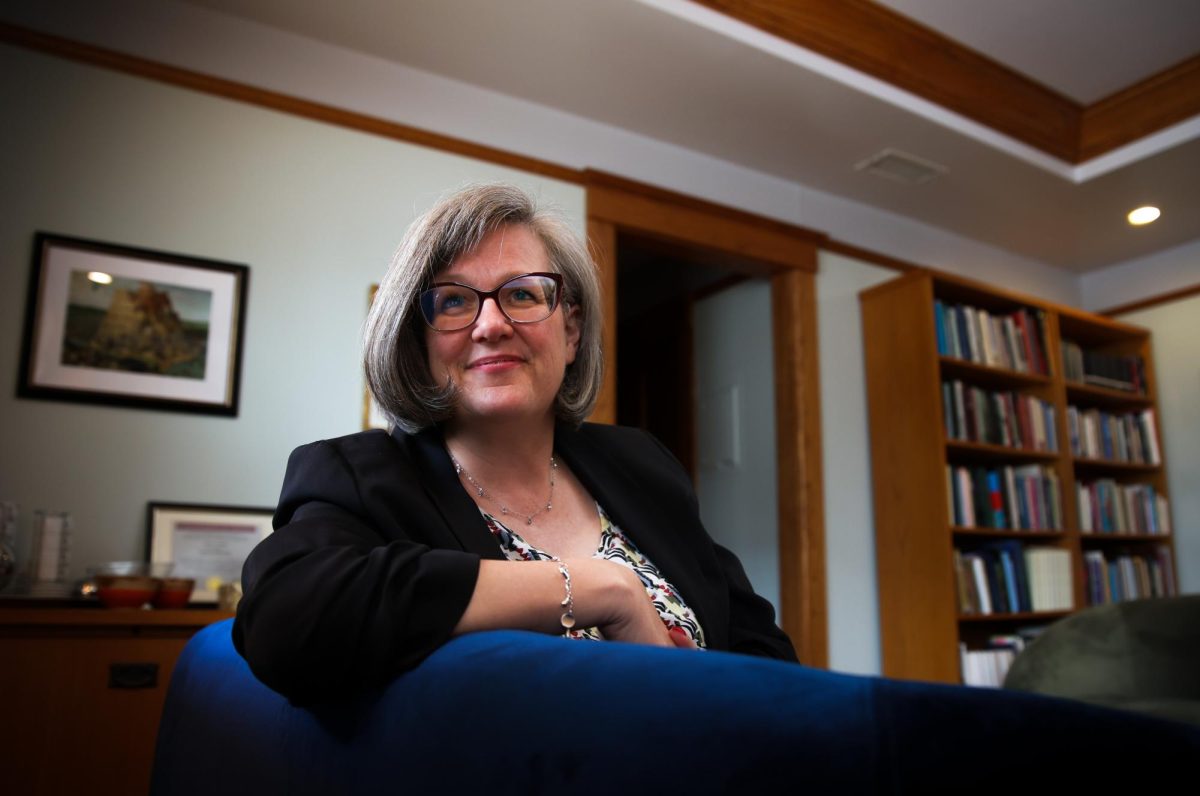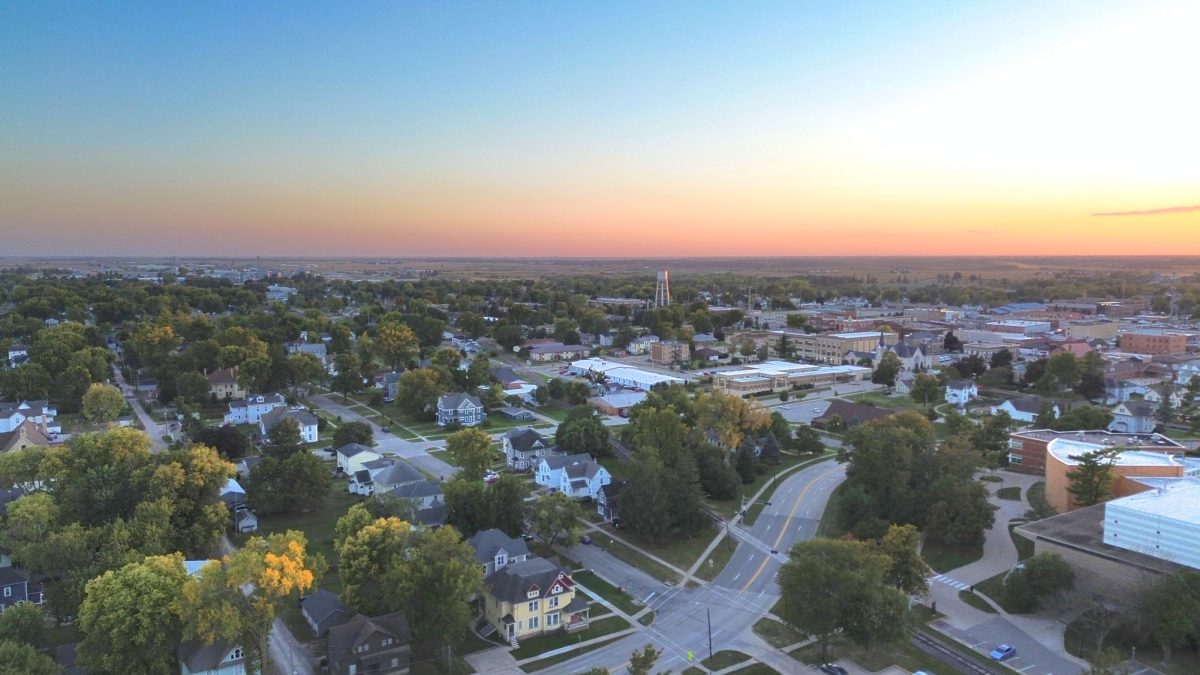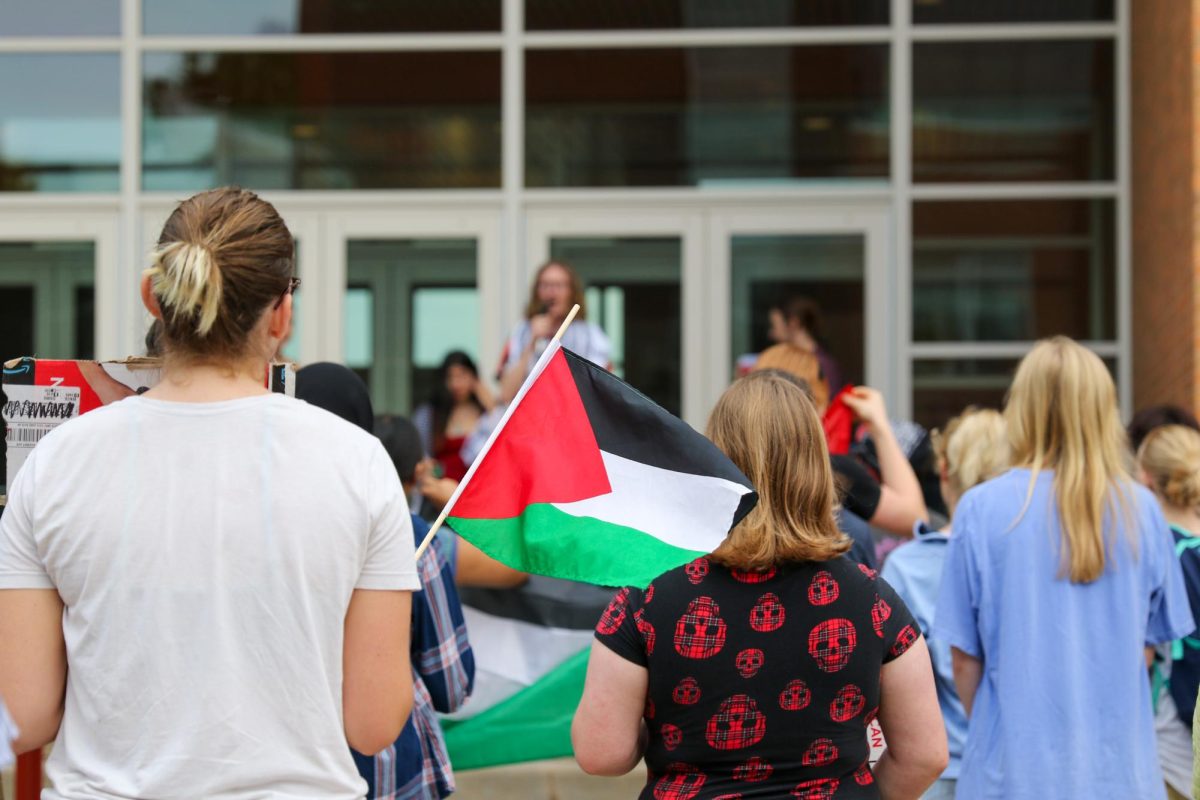
By Zoe Fruchter
fruchter@grinnell.edu
With the eyes of the nation on Iowa in anticipation of the 2020 caucuses, another election is taking form: the election of Student Government Association (SGA) executives for the 2020-21 academic year. Tonight in the Humanities and Social Science Center (HSSC), seven candidates (one student video-calling from studying abroad) outlined their platforms and campaign messages for three different executive positions: president, vice president of student affairs (VPSA) and vice president of academic affairs (VPAA).
Lana Katai and Amanda Weber, both ‘21, are running for the most senior position in student government: president. Katai and Weber both have extensive experience in student government; Weber is the current SGA Treasurer and Katai is the current All Campus Events (ACE) chair.
Katai’s platform focuses on active representation for students surrounding three values: accessibility, transparency, and diversity and inclusion. Weber asserted her practical experience in SGA as proof of her commitment to Grinnell College students. Both candidates centered their messages around the role of president as an advocate for students in the often contentious relationship between the student body and the administration.
“Every year they’ve taken things away from us,” said Katai in reference to the administration’s closure of student organizations such as the Black Cultural Center. “[We need] an SGA that takes a stand to administrative decision before those decisions are made.” She positioned herself as an outsider candidate, willing to push the administration for students who have had enough.
Weber said that Student Affairs have “infringed on our [students’] autonomy” and referred to her extensive experience as proof of her ability to make “real action plans,” intimating a functionalist approach of working with the administration as opposed to Katai’s more impassioned rhetoric. Yet, she added, “I’m done just chatting; I want to act.”
The tension between students’ lived experiences and administrative policies featured prominently in most of the candidate’s talking points this evening.
“They speak at us, they don’t speak to us,” said Katai.
In the VPAA race, Charun Upara ‘21 promised to initiate “an actual, serious conversation with administration and faculty” about the workload at Grinnell. His competitor, Fernando Rodriguez ‘20 did not directly address the issue of the student/administrative divide but promised to stand up for pre-professional students, which he framed as underserved at Grinnell.
The VPSA race is the most crowded of all three contests, with three candidates running: Tucker Haddock, Amelia Zoernig (the video-conferencing attendee) and Syamala Neeraja, all ‘21. All three students promised to advocate for under-represented students and help students take advantage of SGA’s resources to elevate their voices.
Neeraja took a more macro perspective than others on her candidacy.
“I came to this school in a transitional period,” she said, referring to Donald Trump’s presidential election in 2016. She stated the College finds itself in another transitional period with the departure of College President Raynard Kington and pledged to stand up for students of color and minority students who “are in trouble the most [during transitions] while being the most left out of these conversations.”
Zoernig was the only candidate to mention the importance of College students’ relationship to the town of Grinnell. She also mentioned a plan to “overhaul our digital infrastructure.” Haddock wants to enable student leaders to help other students, not “surveil them.”
Around 35 students attended the forum. Attendees were given the opportunity to ask questions, and moderator Destiny Magnett ‘22 read pre-submitted questions. Queries focused on candidates’ attitudes towards the expansion of United Grinnell Student Dining Workers, methods of working with the administration, the ideal role of Student Educational Policy Committees (SEPC’s), working with those outside of their “immediate orbit” and the role of senators in SGA.
Current VPSA Saketan Anand ‘21 asked about the candidates’ ability to work together on policy as an executive board, highlighting the importance of cooperation and collaboration in a potentially divisive race. The candidates agreed on the centrality of these values to the SGA administration.
“I hope that we all have a common interest that the decisions we make and the things we do are for the students,” said Rodriguez.
Indeed there is much more that unites these candidates than divides them. All but Upara have held previous SGA positions, all are involved in many different student and academic organizations and all are focused on standing up to an administration that they frame as disconnected from the daily lives of students. Yet, most of all, the students running for executive positions have immense respect for each other.
“This is one of the best races I’ve ever seen,” said Weber in reference to her fellow candidates. “I would be lucky to work with any of them.”
Voting for executive candidates begins online next Tuesday, Feb 4, and will continue until Feb 7.



























































